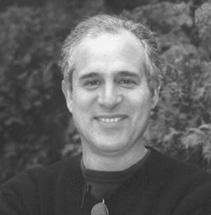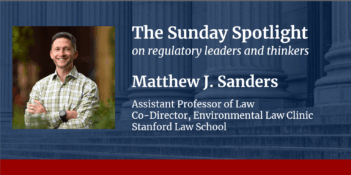
Scholar espouses a renewed focus on pollution prevention efforts, with an appreciation of government’s ability to effect meaningful reform.
In 1990 Congress mandated investment by the U.S. Environmental Protection Agency (EPA) in pollution prevention. In response, EPA developed a hierarchy of strategies with a central focus on reducing pollution at the source, rather than trying to clean up messes after pollution had already occurred. Unfortunately for the chemical industry, the “source” means the decision by manufacturers whether or not to use toxic chemicals in the products they sell.
Recent reforms to federal legislation governing toxic chemicals impede the pollution prevention efforts, however, by counterproductively preempting important state-level efforts to restrict toxics. It is in the states where the toxics use reduction form of pollution prevention has predominated. It is far more than the business justification that makes them essential. Pollution prevention laws are necessary because they most effectively protect health and the environment—that they are good for businesses (excepting those that sell toxics) is icing on the cake.
In 1990 every state had a pollution prevention program. Over the past 26 years, businesses have accomplished a great deal in reducing the use of toxics at the source. Although much more can and must be accomplished, unfortunately, governments have substantially cut investments in pollution prevention efforts. As examples, consider the diminished number of grant opportunities from EPA, reductions in staffing for state programs, and the termination of national conferences for pollution prevention professionals. EPA still employs many staff members strongly and sincerely dedicated to prevention, but the Agency no longer displays the visible, public commitment to pollution prevention continuously articulated by EPA’s top officials during the 1990s.
Pollution prevention makes business sense. Consider pollution prevention efforts in Massachusetts as an example. During the 26 years that I worked on the Massachusetts Toxics Use Reduction Act program, I saw that many toxic chemicals reduction efforts have immediate payback and found that basically all have eventual payback. The National Pollution Prevention Roundtable has compiled results showing exceptional advances in toxic chemical reduction for very little investment. One report, titled “An Ounce of Pollution Prevention is Worth 167 Billion Pounds of Cure,” found that the businesses that responded to the survey, which had received assistance from state pollution prevention programs, reported saving $652 million during the 1990s. The savings were achieved with the help of state budgets and an investment by EPA of less than $6 million per year.
In Massachusetts, where chemical input reporting has allowed careful tracking of results, businesses have avoided using hundreds of millions of pounds of toxic chemicals, and surveys have shown that the majority of companies have benefited financially. Remarkably, the state’s toxic chemical law does not mandate one pound of reduction; instead, businesses must evaluate options to deal with toxic chemicals. Thus, all the reported reductions are considered voluntary.
Why have we not built on this success? The resistance by those in the chemical industry who stand to lose business from successful toxics reductions policies does not offer a sufficient explanation. I believe that another important cause of the decline of pollution prevention involves a failure by our society to appreciate that government can do something right, that we must develop and use government. In short: failing to uphold the idea of positive freedom.
Negative freedom means liberation from despotic rule. But positive freedom encompasses the ability to form a government of the people—what Lincoln envisioned. Negative freedom is mere anarchy, which will not likely work until there are enough self-responsible individuals. Until people become angels, we shall need government, or so Madison thought, and our founders won for us the ability to form it ourselves.
To restore the importance of positive freedom to the American psyche, we must recover a sense that government can work. We should pay more attention to efficient investment when it occurs, including by the government. Returns on investment in pollution prevention far surpass what would count for stunning success in the private sector. Something government has done has worked, and we should build on it.
Pollution prevention offers an attractive business and technological investment. It is most efficient to address toxics—whether in air and water pollution, waste, accidents, occupational exposures, or risks to consumers from toxic ingredients—by examining the possibility to avoid using toxics in the first place. We should turn our attention once again to pollution prevention, and the virtues of using the tools of government to effect meaningful reform.
There are many actions we can take. Some examples include reviving the idea to settle toxics enforcement cases with agreements to investigate alternative practices; restoring and increasing funding for pollution prevention assistance programs; ensuring customers have a full right to know the chemical contents of products they purchase; expanding research and demonstration of safer alternatives and subsidies for green chemistry; requiring a prevention analysis before granting a permit to pollute; and reversing the limitations placed on states’ authority to protect citizens that were enacted as part of recent federal legislation covering toxic chemicals.
Three decades of pollution prevention has worked, yet we have cut investments in it. I believe that turning away from pollution prevention speaks to our attitude toward the government and our lack of attention to positive freedom. But the story of pollution prevention assistance programs provides a clue about what we might do. Without giving money to the businesses they helped, many pollution prevention assistance programs caused huge changes in industrial production through targeted awareness. Pollution prevention specialists often asked simple questions such as: “Why do you use that chemical?” “Have you considered other ways to perform that function?” Awareness is a powerful force for change.
So let us ask: Why are we allowing our government to wither on the vine? Why are we letting certain portions of industry dominate chemicals policy? Why are we not building on or even aware of successes? Why do we not know what is in what we buy? Do we not have a right not to be poisoned? Asking the right questions may help us remember how we might form a more perfect union.




